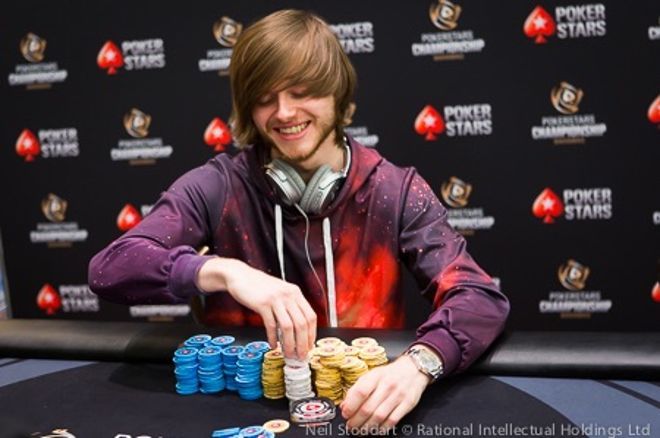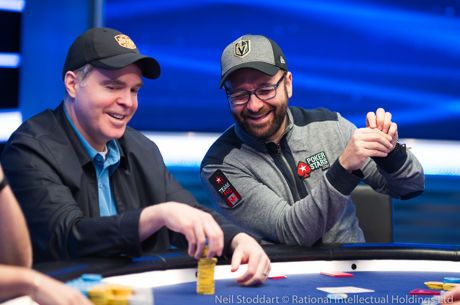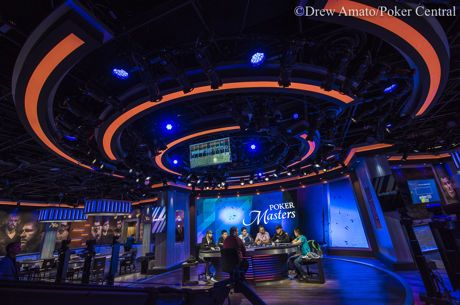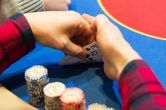Teachable Moments From Twitch: Capping Ranges With Small Bet Sizing

As a student of the game, I often watch poker coverage for educational purposes instead of for entertainment value. I've been able to pick up some good information from the commentators explaining a pro's thought process during a hand in a live game, but this has always been a flawed method since the source is secondhand. Unfortunately, this was the best we could do until recently.
With the current trend of poker pros playing online games on Twitch, we can now get firsthand explanations of why pros do what they do. This is an amazing learning tool that I have been taking advantage of frequently, including during the just completed World Championship of Online Poker series on PokerStars.
Here is an example of hand that taught me a valuable lesson, delivered recently by poker pro Charlie Carrel via his Twitch channel.
Carrel was four-handed in the $75K Guaranteed Sunday 500. As chip leader with 73 big blinds, he was in a great spot to apply pressure to the two 40-ish big blind stacks due to the fact that the short stack only had 8 BBs.
In this hand, one of the medium stacks and the short stack both folded, and the action was on Carrel in the small blind with A?5?. He raised 3x and got a call from the other medium stack in the big blind with about 40 big blinds.
The flop came 10?9?8?. Carrel immediately identified this as a spot to get out of line because of the immense ICM pressure on the player in the BB and because he recognized him as a good, but not elite reg.
Carrel started by betting 34 percent of the pot, choosing a small sizing due to the fact that he was out of position and had very little equity on one of the wettest flops imaginable. Carrel's reasoning was that he expected this opponent to raise the small flop bet with two pair or better almost 100 percent of the time. This means that if the big blind just called, which he did, then his range would be capped at one-pair hands and draws.
The turn brought the safe 3? and this time Carrel fired for 78 percent of the pot. He was thinking that a lot of villain's hands contained a pair plus a draw that would allow him to call a big turn bet, but not a big river bet if he were unimproved. As expected, the BB did make the call.
The river was the K? which was another blank. Again, Carrel bet 78 percent of the pot, a bet which almost put his opponent all in with the 31 BB stack he had behind. Fortunately for Carrel, this player decided to fold as expected.
Carrel estimated that this river bluff would get through almost 90 percent of the time. If this is true, then his river bet was massively profitable since it only needed to work around 44 percent of the time to break even.
The idea of using small bets on dynamic flops to cap your opponent's range is not something you would expect to learn from watching coverage of a live poker event on television. Luckily for the studious ones among us, players like Charlie Carrel and others are willing to demonstrate and explain these concepts on Twitch.
I will be on the lookout for more teachable moments like this one in the future to share.
In this Series
- 1 Teachable Moments From Twitch: Capping Ranges With Small Bet Sizing
- 2 Teachable Moments From Twitch: Chance Kornuth on Preserving Tournament Equity
- 3 Teachable Moments From Twitch: Ryan Laplante on Reliable HUD Stats
- 4 Teachable Moments From Twitch: Leading Into the Preflop Raiser
- 5 Teachable Moments From Twitch: Triple-Barrel Bluffing With 'bencb789'









